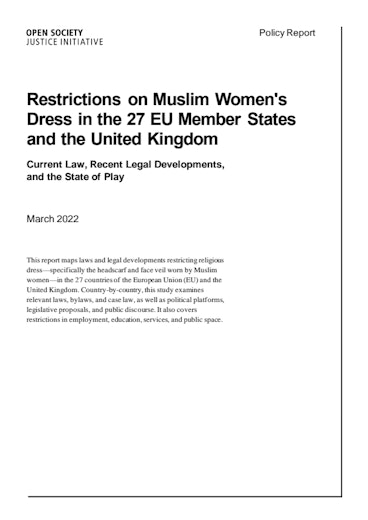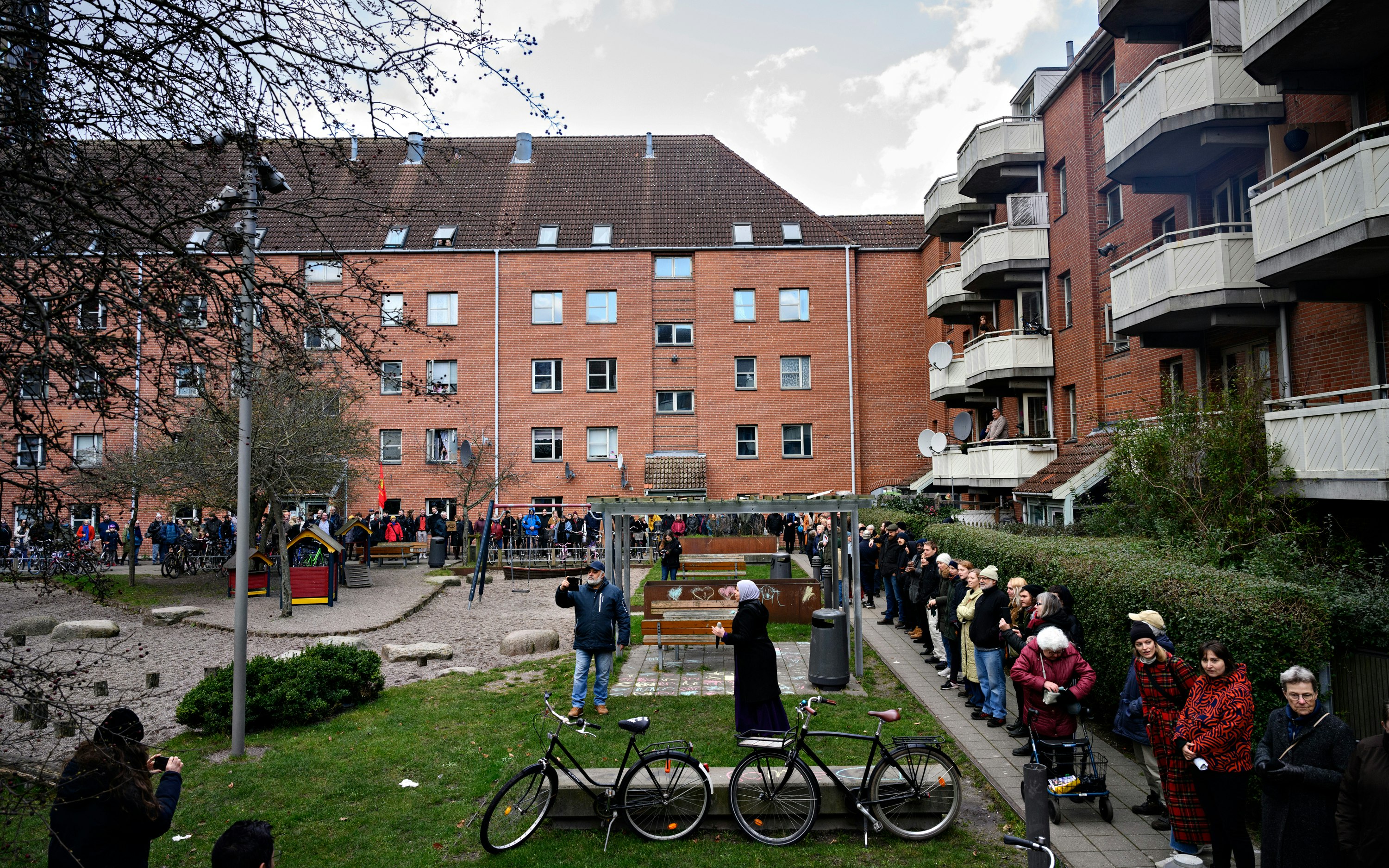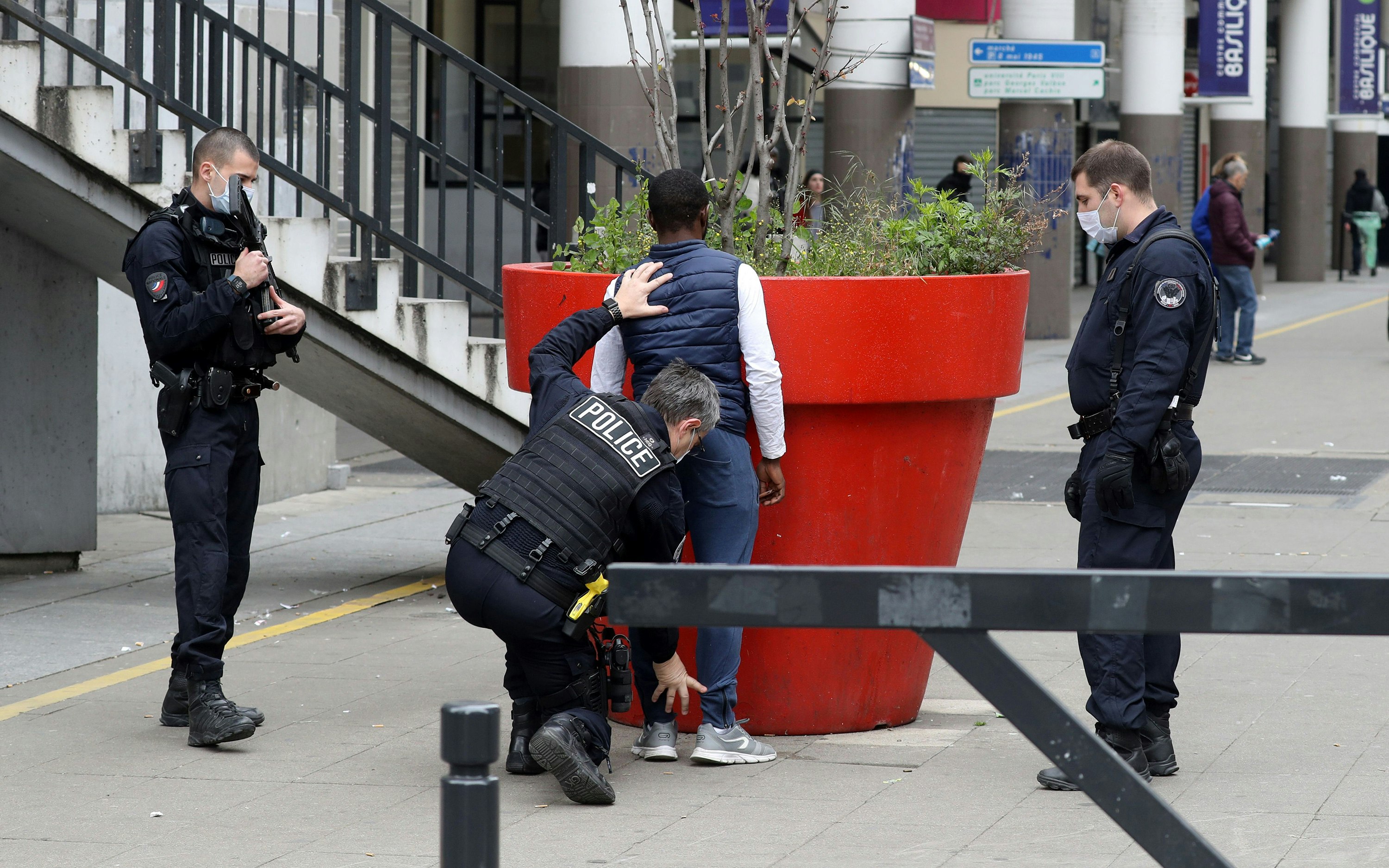Ethnic Profiling in Gyöngyöspata
Challenging Unequal Treatment by Police
Vigilante groups descended on the Hungarian village of Gyöngyöspata for two months in 2011, forming “patrols” and harassing local Roma inhabitants. Rather than intervening to protect the villagers, the police started imposing fines on Roma for the most minor offences, following an apparently deliberate practice of singling Roma out for this treatment. At first instance, the court agreed with the Hungarian Civil Liberties Union and the Open Society Justice Initiative (which submitted a third party intervention in the case) that policing on the basis of ethnicity amounts to ethnic profiling, a prohibited form of discrimination. It held that the police by means of its petty offense practice engaged in direct discrimination against members of the Roma community in Gyöngyöspata. On appeal, a second-instance court reversed this ruling for lack of evidence, a view which the Supreme Court of Hungary upheld, holding the Hungarian Civil Liberties Union did not establish a prima facie case of discrimination with regard to the ethnic profiling allegations. The Supreme Court agreed with the petitioner on the other aspect of the case, finding the police harassed the Roma by failing to protect them from the vigilantes.
Facts
In the spring of 2011, right-wing extremist, anti-Roma vigilante groups descended on the segregated Roma settlement of the Hungarian village of Gyöngyöspata to harass its inhabitants under the guise of conducting “patrolling” activities to curb what they defined “gypsy crime.” Often dressed in military-like uniforms and wearing black facemasks, members of the group intimidated Roma, including children, through racial slurs and verbal abuse, following them in close proximity around the village and approaching them with axes, whips or other improvised weapons. In one instance, a Roma woman went into premature labor after being harassed on the street. Intimidation continued at night as well, when Roma were kept awake by the vigilante groups roaming the streets, making loud noises, continuing their threatening language and lighting up people’s gardens with their flashlights. Rising tensions ultimately culminated in a scuffle, shortly after Roma women and children had been “rescued” from Gyöngyöspata by being taken out of the village on buses. Following the scuffle, the vigilante groups left the village, bringing their two-month presence there to an end.
During this period, the police are alleged to have systematically failed to intervene to enforce the law and stop the overtly racist activities of the extremists. At times, the police even appeared to be cooperating with the vigilante groups. Furthermore, the police aggravated the harassment suffered by the local Roma community by engaging in practices of disproportionately and unnecessarily fining persons of Roma origin in that same settlement for minor offenses, usually traffic violations. These traffic violations included walking or pushing a stroller on the street as opposed to the dilapidated sidewalk; throwing away cigarettes or seed shells on the street; the lack of compulsory bicycle accessories, even when the bike was merely being pushed to transport sacks of flour and potatoes—violations that are usually overlooked in the case of the non-Roma.
Open Society Justice Initiative Involvement
The Open Society Justice Initiative submitted written comments as a third party intervener in the case launched by the Hungarian Civil Liberties Union (HCLU) as an actio popularis.
Arguments
The third party intervention sets out the international standards and norms that govern the actions of the Hungarian police, and whether what they did amounted to unlawful discrimination against Roma.
Legal standards prohibiting ethnic profiling. Ethnic profiling is a form of discrimination which is prohibited under a range of treaties to which Hungary is a party. It has been repeatedly condemned by United Nations and European human rights bodies and by national courts across Europe.
Proof of ethnic profiling. Once a difference in treatment against a specific ethnic group has been established, the burden of proof shifts to the State authority to demonstrate that the difference is justified. The difference in treatment creating the presumption of discrimination and shifting the burden of proof can be established by a wide range of evidence, including statistics.
State obligation to protect against racist attacks. The State must protect vulnerable communities from racist harassment and violence. Police must not condone racist attacks, and must effectively investigate them, including investigating any racist motives of the attackers.
At first instance, the Eger Regional Court found that the police harassed members of the Roma community in Gyöngyöspata by failing to respond to the vigilante groups, violating their right to equal treatment.
The court also ruled that the police engaged in direct discrimination against members of the Roma community in Gyöngyöspata through their practice of prosecuting petty offenses, also violating their right to equal treatment. The court found that police documents demonstrated that local Roma were fined at a disproportionately high rate predominantly for pedestrian and bicycle violations. The police likely noticed similar violations committed by the non-Roma population as well but brought no action against them. The court emphasized that on the basis of the judgment the police had the opportunity to take the necessary steps to prevent similar fining practices in the future.
On appeal, the Debrecen Regional Court of Appeal departed from the fundamental rights approach taken at first instance and ruled the police had not had any legal options to take action against the vigilantes in Gyöngyöspata in the time period in question, and so they did not fail to act to protect the Roma. With regard to HCLU’s allegations of an ethnically disproportionate fining practice by the police, the court did not delve into the merit of this claim. It held instead that HCLU did not fulfill its substantiation obligation, that is, HCLU did not render it probable that the Roma community suffered a disadvantage. The court ruled that in order to shift the burden of proof, HCLU would have had to analyze the full set of police data on petty offences sanctioned in the village, observe in great detail alleged petty offences left unsanctioned or substantiate intent to discriminate either by the police institutionally or police officers individually.
The Curia (Supreme Court of Hungary), the highest domestic judicial authority, partially reversed and partially upheld the second-instance court’s decision. The Curia held the police engaged in harassment against the Roma community when they failed to act against the vigilantes, confirming the ruling on this aspect of the case at first instance. But it also ruled that the HCLU failed to establish the presumption that the identity checks and misdemeanor-related fines subjected the local Roma to a disadvantage compared to the majority population. The Curia, upholding the appeal court’s decision in relation to HCLU’s allegations of an ethnically disproportionate fining practice by the police, held that the data and witness statements relied on by HCLU were not sufficient for establishing the presumption of discrimination against the Roma. The Curia also rejected HCLU’s preliminary reference request to the Court of Justice of the European Union with regard to the reversal of the burden of proof, ruling it did not raise any reasonable doubt regarding the interpretation of EU law.
Citing fair trial concerns during domestic proceedings, including potential misinterpretation of the evidence submitted, misapplication of rules over the burden of proof and unfounded rejection of the preliminary reference request by the Curia, HCLU has launched an application with the European Court of Human Rights in this case.
HCLU files an application with the European Court of Human Rights, citing fair trial concerns during domestic proceedings.
The Curia rules that the Hungarian Civil Liberties Union did not establish a prima facie case of discrimination with regard to the ethnic profiling allegations, upholding the judgment of the second-instance court on this aspect of the case.
HCLU files an appeal request with the Curia (Supreme Court of Hungary), including a preliminary reference request to the Court of Justice of the European Union.
The Debrecen Regional Court of Appeal reverses the judgment of the first-instance court.
The Eger Regional Court finds that the police engaged in direct discrimination against the local Roma population in Gyöngyöspata through their fining practices.
The Open Society Justice Initiative files its third party intervention.
The first instance trial of the case starts.
The Hungarian Civil Liberties Union (HCLU) submits its application to the Eger Regional Court (a first-instance regional court in Hungary).
Related Cases
Williams v. Spain
With Women’s Link Worldwide and SOS-Racismo Madrid, the Open Society Justice Initiative filed a complaint to the United Nations Human Rights Committee on behalf of Rosalind Williams regarding a case of racial profiling by a Spanish police officer.
Seydi and others v. France
Racial profiling by the police is pervasive in France. This case argues that the application of Article 78-2 of the French Criminal Procedure Code violated numerous fundamental rights and freedoms.
Related Work
Restrictions on Muslim Women's Dress in the 27 EU Member States and the United Kingdom
This policy brief and accompanying fact sheet map EU and UK laws and pending legislation restricting religious dress—specifically the headscarf and face veil worn by Muslim women.

Evidence Suggests Evictions in a Danish Neighborhood were Racially Biased. Now the Case is Before the High Court.
This case may set an important precedent for standards for discrimination in Denmark.

Why We Are Going to Court to Fight Racist French Police Tactics
Two French activists are demanding systematic action to address deep-rooted patterns of ethnic profiling in police stops.
